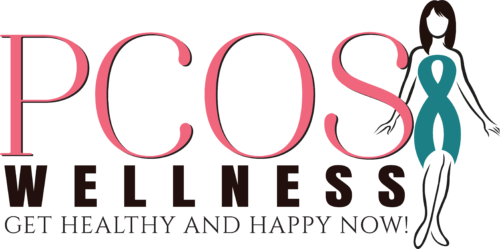
Improving Mood Swings, Part 1: Reducing Susceptibility
PCOS Mood Swings: Reducing Susceptibility
If you are a woman with PCOS, you are probably fed up with feeling – or even being called – “crazy” or “moody” or maybe even “overly sensitive.” You may have noticed that you can go from 0 to 60 in terms of irritation, anger, or sadness at the drop of a hat. Or maybe you feel like a tiny lifeboat being tossed around by the turbulent seas of your own feelings, doing your best to white-knuckle through.
If any of this sounds familiar, then this three-part blog series is for you! In this first entry, we’ll talk about how to reduce your vulnerability to moodiness or mood swings. Next up, we’ll discuss psychological and behavioral techniques you can use to reduce mood swings. Finally, the third entry will discuss over the counter supplements you can try to improve your emotional regulation and equanimity.
Now then, the first and most important piece of information I want to impart on you is this: YOU ARE NOT CRAZY. Having PCOS means dealing with a body whose hormonal and endocrine systems are often totally out of whack (to use a technical term)! This both creates turbulent emotional waters on its own, but also throws off the brain’s mechanisms for managing stress and anxiety. So no, you’re not crazy, you’re just trying to steer your ship through rough seas, and that is not your fault.
Okay, but even if being moody isn’t your fault, that doesn’t mean there aren’t things you can do! More specifically, how can you reduce your susceptibility to moodiness in the first place?

Here are some evidence-based things you can do to give yourself the best possible head-start against mood swings:
Get enough sleep and practice good sleep hygiene: Did you know that according to the National Sleep Foundation only about one-third of Americans regularly get eight hours of sleep per night? Chances are, if you are reading this, that you too are chronically sleep deprived. This is no laughing matter. Chronic sleep deprivation not only leads to unstable emotions and poorer stress response, but it is also linked to increasing cardiovascular risk, poorer mental functioning, and a host of other problems (Alkadhi, Zagaar, Alhaider, Salim, & Aleisa, 2013; Ayas et al., 2003; Minkel et al., 2012).
For optimum health, you should be getting roughly eight hours of sleep per night, and you should be going to sleep and waking up at the same time each day. If you have trouble with your sleeping habits, you can check out my helpful sleep tips on my blog!
Exercise regularly: Here’s another “obvious” one that many of us still struggle to actually do. Science has proven that regular (at least three times per week for 20-30 minutes or more) aerobic exercise helps regulate our emotions and fight depression and anxiety. In fact, some research has found that regular exercise can be as effective as antidepressant medication (Blumenthal, Smith, & Hoffman, 2012)! So if you find yourself struggling with moodiness, getting your sweat on should be high on your priority list!
Get out in nature: Almost everyone likes to escape from the urban sprawl so many of us live in and commune with Mother Earth, whether that means hitting the beach, the trail, camping, or other outdoorsy activities. But did you know that there is an entire field of psychology called ecopsychology, that studies the ways in which nature benefits us? Getting out in nature has been found to help reduce depression and anxiety, speed up recovery times from surgery, and enhance our overall well-being (Bowler, Buyung-Ali, Knight, & Pullin, 2010). It’s okay if you can’t spare the time to take the kids camping, just make sure to take some pleasant walks in a natural environment as often as possible.
Practice positive self-care: Being a woman, much less a woman with PCOS, ain’t easy! Between the responsibilities of careers, families, partners, children, chores, errands and more, it’s a wonder we ever get enough sleep (oh right, most of us don’t!). Therefore, we often run around emotionally, physically, and energetically depleted. This sets us up for failure when it comes to everyday stressors, as even small things can exceed our limited capacity to cope gracefully. The solution to this is to fill up your cup with intentional self-care.
What this entails will look different for everyone, but in addition to sleep, exercise, and nature (which I consider self-care “musts”), you might want to try getting regular massages, taking long bubble baths, singing, dancing, doing yoga, making arts and crafts, even intentionally indulging in your favorite trashy television show! The point is to focus on you and what you want and like, and to make it a planned and deliberate way to treat yourself kindly.
I hope these suggestions have been helpful! Go to PCOSwellness.com for more great information about managing your PCOS mood swings.
Following these guidelines will ensure that you are putting your best foot forward and giving those moodiness brain demons as little ground to stand on as possible. That being said, these steps may not make mood swings go away on their own. Remember, you’re dealing with a dysregulated system here. So next week we’ll look at what exercises you can do, both before and during a mood swing, to help right your ship and get you sailing forward again!
References:
Alkadhi, K., Zagaar, M., Alhaider, I., Salim, S., & Aleisa, A. (2013). Neurobiological consequences of sleep deprivation. Current Neuropharmacology, 11(3), 231–49. http://doi.org/10.2174/1570159X11311030001
Ayas, N. T., White, D. P., Manson, J. E., Stampfer, M. J., Speizer, F. E., Malhotra, A., & Hu, F. B. (2003). A Prospective Study of Sleep Duration and Coronary Heart Disease in Women. Archives of Internal Medicine, 163(2), 205. http://doi.org/10.1001/archinte.163.2.205
Blumenthal, J. A., Smith, P. J., & Hoffman, B. M. (2012). Opinion and evidence: Is exercise a viable treatment for depression? ACSM’s Health and Fitness Journal, 16(4), 14–21. http://doi.org/10.1249/01.FIT.0000416000.09526.eb
Bowler, D. E., Buyung-Ali, L. M., Knight, T. M., & Pullin, A. S. (2010). A systematic review of evidence for the added benefits to health of exposure to natural environments. BMC Public Health, 10(1), 456. http://doi.org/10.1186/1471-2458-10-456
Minkel, J. D., Banks, S., Moreta, M. C., Jones, C. W., Simpson, N. S., & Dinges, D. F. (2012). Sleep Deprivation and Stressors: Evidence for Elevated Negative Affect in Response to Mild Stressors When Sleep Deprived. Emotion, 12(5), 1015–1020. http://doi.org/10.1037/a0026871.Sleep
Session expired
Please log in again. The login page will open in a new tab. After logging in you can close it and return to this page.
